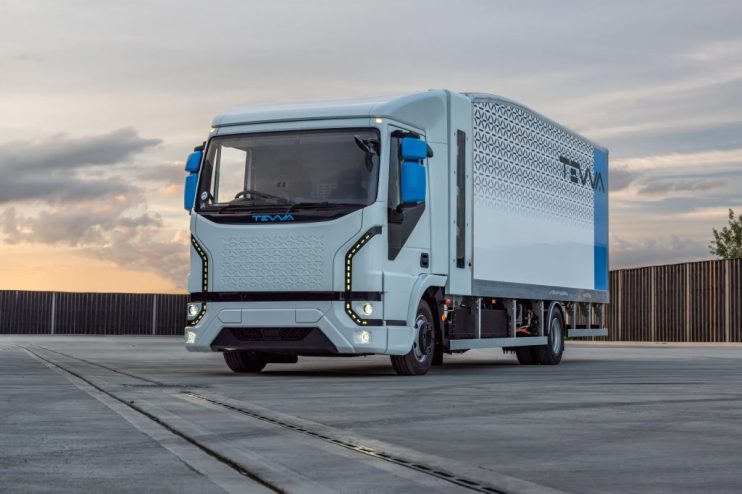‘If Elon Musk was born a Brit he wouldn’t have raised a penny’: Why Tevva Motors is shunning the UK for the US

The executive chair of electric truck supplier Tevva Motors has bemoaned London markets as “risk averse” as the firm looks to head across the pond via a merger with the Nasdaq-listed carmaker Electra Meccanica.
“If you want to get capital, you’ve got to go west, you really have got to go west,” David Roberts, who helped found the business as its first investor over a decade ago, told City A.M.
“London as a place is very risk averse, it always looks at the downside model, it always looks at the risk significance,” he said, while in America, “you find in the main people saying, well, how big can you grow this business? How much capital do you need to be really, really big… the whole culture is built around this, this big ambition.”
Tevva, a taxpayer-backed UK startup which produces electric and hydrogen-powered trucks, announced plans last to month to merge with the Canada-based electric vehicle (EV) maker Electra Meccanica.
As part of the proposed deal, the lorry maker will relocate its headquarters to the US and inherit Electra Meccanica’s manufacturing site in Arizona, though it will retain its factory in Tilbury, Essex.
Tevva, whose suppliers include UPS, has been struggling with ongoing cash flow problems and was forced to lay off staff earlier this year.
Talking about the move, Tevva’s outgoing executive – who is set to become chair of the newly formed group – commented on London’s investment climate, which he believed had become increasingly inhospitable for tech companies and startups.
“If Elon Musk had been born a Brit, he wouldn’t have raised a penny,” he said.
“America is the place for tech companies, and it’s the place for growth capital. London is still, you know, rather conservative in how it looks at market opportunities.”
Tevva’s departure marks just the latest in a slew of companies which have pursued a listing in the US over the UK, with notable snubs this year including gambling giant Flutter and building supplier CRH.
Electric bus maker Arrival also began shutting down its UK operations late last year as it shifted priorities to the States, following years of significant financial losses.
“When you’re talking to UK based investors, you know, it’s just a very, very challenging hurdle you’ve got to get over. And I think I’m sad to see it, but we’re seeing it every week now, people saying we’re moving out and we’re gonna list across in the States,” Roberts said.
There are also major draws for electric vehicle makers in the form of subsidies offered by Biden’s Inflation Reduction Act (IRA), although Roberts was at pains to insist companies were after the “whole atmosphere, the whole culture”, rather than just moving for incentives.
He told City A.M. that UK authorities had been “very difficult to deal with” when seeking funding, so much so that Tevva stopped bothering to approach their government sources some years back and chose instead to raise funds via private equity and private capital.
“If you’ve ever been to the government, and said, I would like some money for this great idea. You’re just gonna struggle and I mean, you’re gonna struggle so badly, you will inevitably give up,” he said.
On top of threats from overseas subsidies, the UK’s EV sector is also well behind in its domestic production of gigafactories, which produce vital batteries for electric models.
As of this summer, the UK currently has only two battery plants in the works, while the US has 34 and China a colossal 283.
“Any automaker will tell you, they’re only as good as their supply chain,” Roberts said.
“We need gigafactories in the UK and they’re a big cost of four to £6bn upfront investment, and a huge risk you’ve got to take,” he added.
Ultimately, it was a toxic mix of factors that led to Tevva’s struggles, but the firm’s directors are much more confident of its future under the new Electra Meccanica deal.
For all his praise of Stateside opportunity, however, reflecting on Tevva’s long-term aim of joining a public exchange, Roberts added: “I would have liked it to have been London, ideally you know, in a sort of holistic world.”